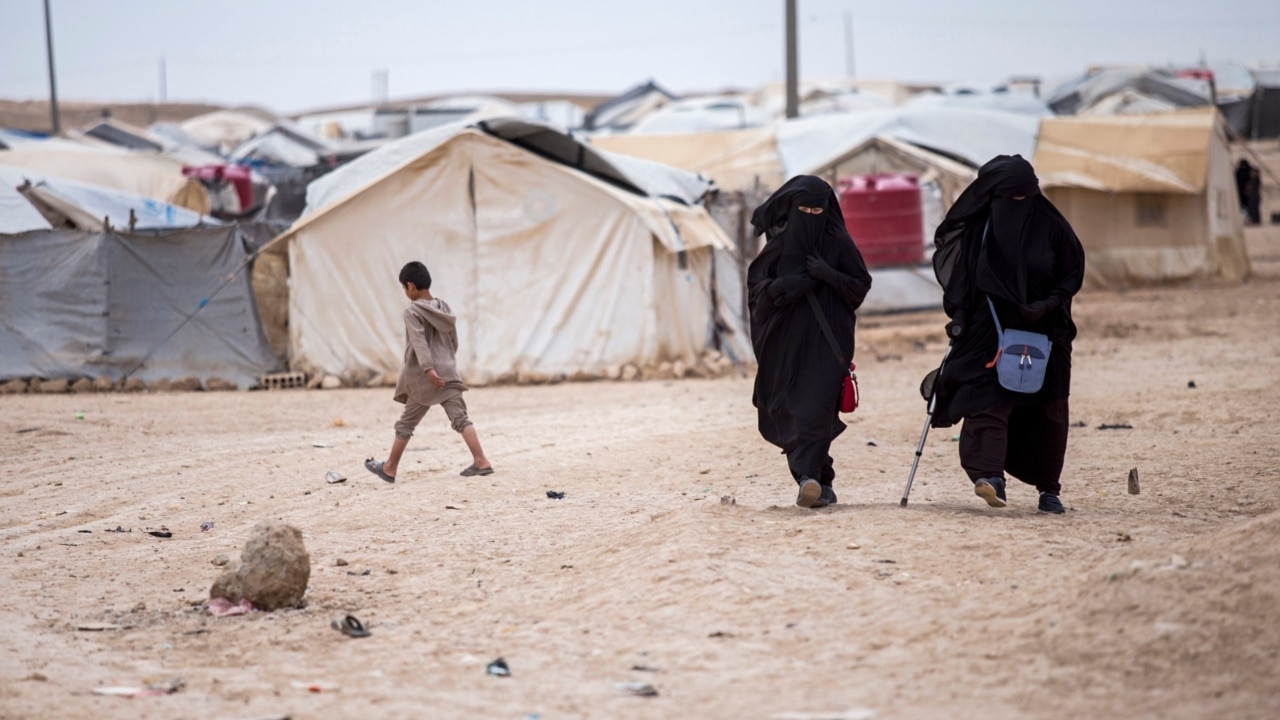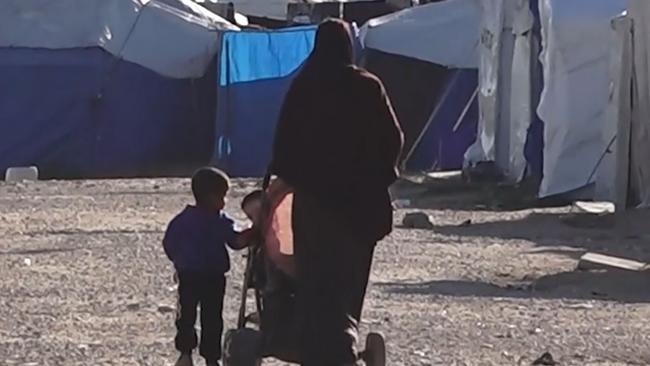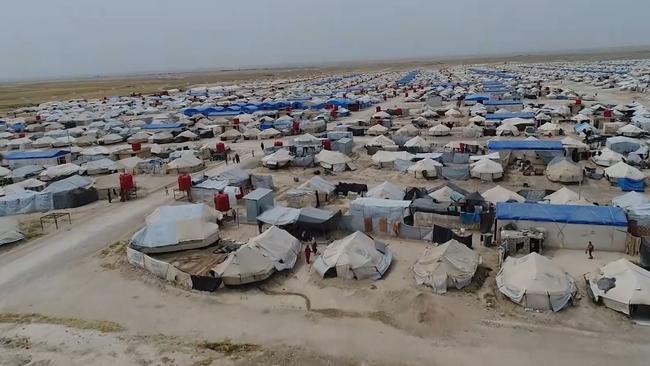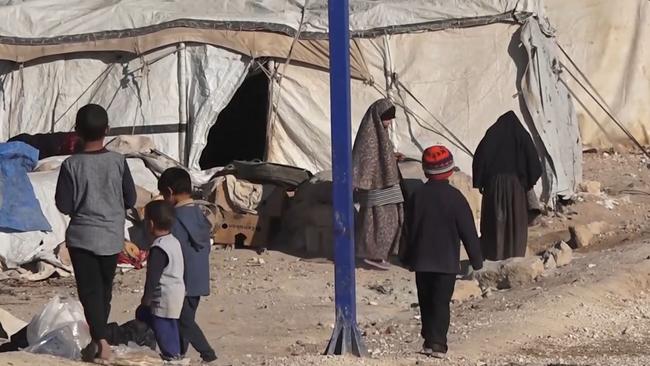Fate of Australian women and children in Syrian refugee camps to be decided in Federal Court
A senior diplomat has told a court any effort to bring back ISIS brides and their children stuck in Syrian camps would require a “political decision”.

A senior diplomat has told a court she was not aware of any plans to bring ISIS brides and their children back to Australia.
On Tuesday, a “last resort” legal fight began in the Federal Court hoping to force the Australian Government to repatriate 12 Australian women and their 21 children from a camp in Syria.
The case has been brought by non-profit group Save the Children Australia who are seeking a writ of habeas corpus – which would require the Commonwealth to bring the women before an Australian court.
Thirty-four women and children with Australian citizenship, or eligibility for citizenship, remain in the Al-Roj camp in Northeast Syria, with 31 joining the lawsuit.
Outlining the case, counsel for Save the Children Australia Peter Morrissey SC said the Government had a moral obligation to return the group who had endured “appalling conditions” for the past four years.

“In this case the situation of the remaining persons detailed is stark and dire,” he said.
“We submit it is abundantly clear there was a plan to repatriate further women and children from the Al-Roj camp.”
He argued the government had an “agreement or understanding” with the Autonomous Administration of North and East Syria (AANES) and its military wing, the Syrian Democratic Forces to facilitate their return.
Mr Morrissey said there was “clear evidence” of the government’s ongoing relationship with AANES which led to the repatriation of four women and 13 children in October last year.
But in her evidence on Tuesday, first assistant secretary of the Department of Foreign Affairs and Trade Kate Logan said when she left her role after the repatriation “no decision” had been made on those still at the camp.
The court was told she was confident more of the women and children could be brought home, but it would require a “political decision”.
In his opening submissions, Mr Morrissey sought to argue there was a standing “arrangement” with AANES who were keen for foreign nationals removed from the area.
He argued correspondence between the AANES and Australia’s Ambassador to Turkey Marc Innes-Brown, who had been appointed as special envoy, contained discussions of a plan to repatriate further groups.

Mr Morrissey noted official documents of the October reparation listed the women and children as “cohort one”.
This, he said, “fits ill” with the Australian Government’s argument that the AANES holds “complete and unfettered discretion” on repatriations.
In submissions filed to the court, Save the Children Australia argued all of the women, many of whom travelled to Syria as children, are citizens and many of the children were born in the camp.
They argue that by being allied with the AANES as part of a coalition against Islamic State, Australia is contributing to their unlawful detention.
Counsel for the Commonwealth, Craig Lenehan SC, said the central issue was the Commonwealth’s ability to affect the writ.
He told the court Save the Children Australia would need to prove the government had “at least defacto” control over the liberty of the women and children.
“Merely being able to ask for a person’s release, and even having high hopes that would be successful, would never be enough,” he said.
“Our fundamental point is the applicant fails to prove its case.”

In a response filed in the Federal Court in July this year the Australian Government argued it is not responsible for the remaining Australian women and children going to Syria or becoming detained.
“The fact that the Commonwealth has been permitted by the AANES, in its absolute discretion, to repatriate Australian women and children in the past does not mean that the Commonwealth had then or has now any control over the detention of anyone in camps,” the response reads.
“That was not an ongoing arrangement, and those repatriations were permitted at the absolute discretion of the AANES.”
Save the Children Australia chief executive Mat Tinkler said the families had waited more than four years to be repatriated, before turning to the legal system as a last resort.
“Despite countless opportunities to repatriate these families, the Australian Government has ultimately failed in its duty to bring all of its citizens home to safety,” he said.
“Save the Children Australia is supporting these innocent Australian children and turning to the courts because they have been abandoned by their own government.”
The trial, before Justice Mark Moshinsky, continues.



